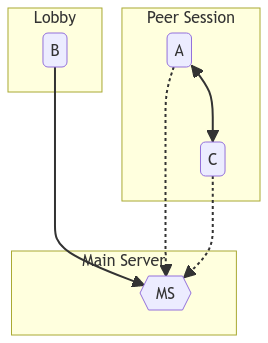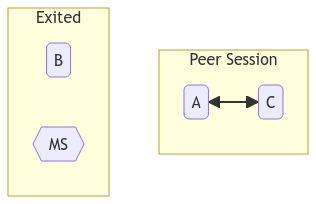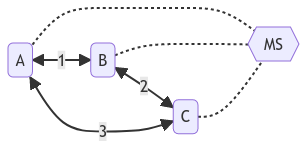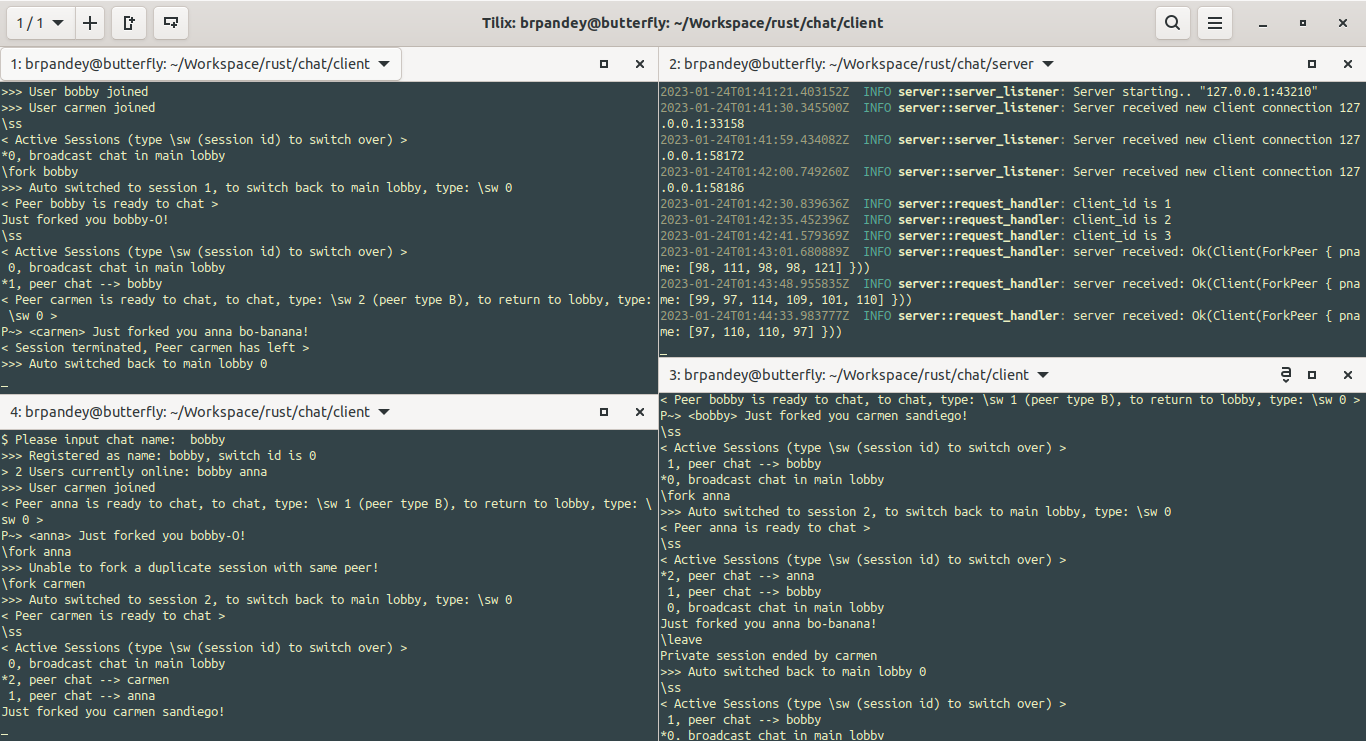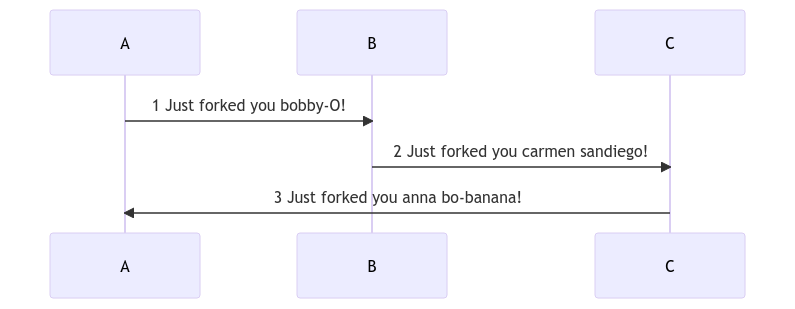Open a terminal window for each path: chat/server and chat/client
Run cargo run in each window (run multiple windows for multiple clients)
Multi-line supported with simple peer to peer chat supported (no routing or overlay)
Supports two modes:
- Traditional, clients/server broadcast: broadcast lobby mode, with each client getting a copy of each message
- Private peer sessions: only the two peers A & B in the peer session see the messages
Usage
$ Commands: \quit, \users, \fork chatname, \switch n, \sessions
Note: fork and users command require that you are in the lobby session e.g. \lobby
$ Please input chat name:
Note
\switch shortcut is \sw
\sessions shortcut is \ss
\fork creates a private, non broadcast session (durable if main server drops)
lobby is available on startup but after a peer session, do \sw 0 or \lob or \lobby
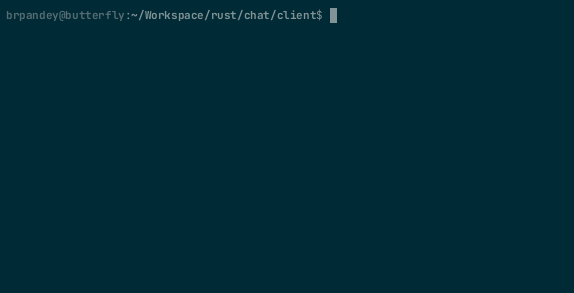
Anna |
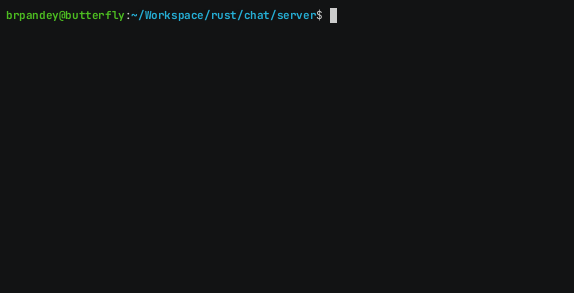
Server |
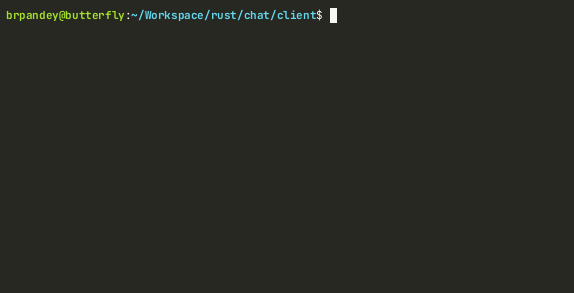
Bobby |
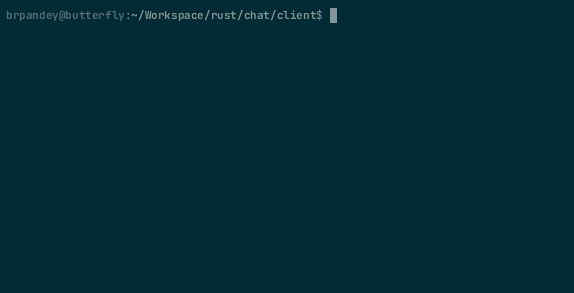
Carmen |
-
Start with one main (also rendezvous) server and three clients A, B, C -- corresponding to anna, bobby, carmen
-
Main server is queried for peer client addr info upon a call to \fork
-
When main server drops out, peer sessions are untouched (just can't go back to lobby)
-
\ss or \sessions cmd shows which sessions are active, * means active session
- anna can privately chat with either bobby or carmen, bobby can with either anna or carmen, carmen can with either anna or bobby
Notes:
-
P-> means peer session in A mode (e.g. current user initiated it, e.g. sent the \fork)
-
P~> means peer session in B mode (e.g. current user received a peer session request from its local peer server)
-
When \fork-ing, can't fork again to same peer name with an already active session! Can't also self fork!
-
For demo purposes only supports max 4 peer servers on the same node (in production, each peer server would be its own node)
-
Handles duplicate names somewhat, as names are used as the unique id
-
And uses Tokio! tasks, mpsc, watch channels, Mutexes, RwLocks, atomics, composite structs...
--Bibek
